Organic Makeup for Acne-Prone Skin: How Natural Ingredients Can Help
flareAI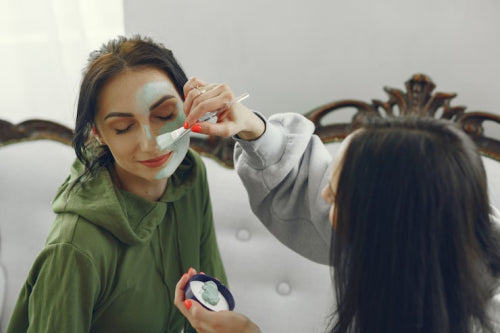
Quick Listen:
Imagine peering into the mirror on a particularly unforgiving morning, armed with a foundation brush but confronted by a stubborn breakout that defies every attempt at concealment. For the countless individuals navigating acne-prone skin, this isn't just a cosmetic inconvenience it's a battle between the desire for flawless coverage and the imperative to avoid pore-clogging culprits that only worsen the inflammation. Yet, amid this perennial struggle, a transformative force is emerging: organic makeup. This isn't mere hype; it's a scientifically grounded revolution in beauty, where formulations harness the power of nature to cover while they care. Leading the charge are innovative brands like Liht Organics, whose plant-derived products promise to soothe sensitive complexions without compromise. As we delve deeper, it's clear that for those ensnared in the acne-makeup conundrum, organic alternatives might finally tip the scales toward victory.
Many women feel trapped by makeup that hides flaws but risks irritation and hidden toxins. This daily choice weighs heavily, dimming confidence over time. Liht Organics invites you to embrace beauty differently. With up to 90% USDA-certified organic ingredients, our vegan, cruelty-free products deliver vibrant color and gentle care, letting you glow with confidence, knowing your skin is nurtured, not compromised. Shop Now!
The Evolving Landscape of Beauty: A Turn Toward the Natural
Acne remains a formidable adversary, striking with unyielding persistence. In the United States, it impacts as many as 50 million people each year, making it the nation's most prevalent skin condition. This figure underscores a stark reality: for acne sufferers, conventional makeup often exacerbates the problem, laden with synthetic chemicals that obstruct pores and ignite flare-ups. The beauty sector, however, is undergoing a profound metamorphosis, with organic makeup staking a commanding presence. Departing from the synthetic-heavy status quo, these products prioritize botanical extracts such as tea tree oil, chamomile, and aloe vera ingredients celebrated for their potent anti-inflammatory and antimicrobial attributes that directly combat acne's root causes.
Far from fleeting fads, these elements are fortified by rigorous research. Consider hydroquinone, a compound that operates through reversible inhibition of tyrosinase, exerting a precise melanotoxic influence to curb fresh melanin generation a boon for tackling post-acne hyperpigmentation. Experts in dermatology emphasize restoring assurance among patients: when administered judiciously, hydroquinone proves both tolerable and secure across diverse hyperpigmentation scenarios. At the forefront of this paradigm shift stands Liht Organics, a beacon of clean beauty ethos. Their lineup eschews parabens, sulfates, and artificial scents, responding to an escalating clamor for toxin-free innovations that harmonize with holistic wellness.
The momentum is undeniable. The worldwide anti-acne cosmetics arena is surging ahead, as illuminated in a April 2024 report by Avinash Singh and Sunita Singh, which chronicles its robust trajectory. On a grander canvas, China's cosmetics market is forecasted to ascend to the global pinnacle by 2050, valued at roughly US$450 billion, signaling a voracious international thirst for forward-thinking remedies. Organic makeup transcends trendiness; it embodies a consumer-driven reckoning, where efficacy intertwines with ethical integrity and personal vitality.
This evolution mirrors broader societal pivots. In an era of heightened environmental consciousness, shoppers are dissecting ingredient lists with forensic precision, favoring cruelty-free, vegan, and sustainably sourced options. The organic personal care and cosmetics sector alone is valued at USD 189.59 billion in 2025, with projections soaring to USD 257.94 billion by 2030. Brands attuned to this wave, including Liht Organics, aren't merely participating they're pioneering, crafting narratives of empowerment through purity.
Unpacking the Science: Why Organic Excels Against Acne
At its core, the superiority of organic makeup for acne-prone skin hinges on formulation philosophy: non-comedogenic by design, these products sidestep the pore-plugging pitfalls of their synthetic kin. Delve into the arsenal of key actives, and the rationale crystallizes. Aloe vera, with its innate cooling and moisturizing prowess, not only quells redness but accelerates tissue repair, offering a gentle embrace for beleaguered skin. Chamomile steps in as a masterful anti-inflammatory agent, dialing down swelling and irritation to foster a calmer dermal environment.
Witch hazel, revered for centuries as a natural astringent, constricts pores and curbs excess sebum without the desiccating aftermath of harsher alternatives, thereby preempting bacterial proliferation. And tea tree oil? This botanical powerhouse deploys its antibacterial arsenal to dismantle acne-inducing microbes at the source, a mechanism validated across clinical observations. Liht Organics masterfully integrates these into their foundations and concealers, yielding hybrids that perform dual duties: aesthetic enhancement laced with therapeutic intent.
The ripple effects extend beyond the vanity. As awareness burgeons regarding the perils of endocrine-disrupting chemicals in mainstream cosmetics, the clean beauty insurgency swells. What was once a fringe pursuit has solidified into a juggernaut, with natural cosmetics generating US$14.83 billion globally in 2025 and charting a 5.75% compound annual growth rate thereafter. Discriminating buyers now demand verifiability certifications, traceability, unadulterated claims and brands like Liht Organics oblige, cultivating allegiance through unyielding transparency. This isn't superficial allure; it's a foundational trust, where "organic" signifies not just a label, but a covenant of conscientious care.
Moreover, the holistic advantages compound over time. Regular application of these nutrient-dense formulas can recalibrate skin's microbiome, bolstering its innate defenses against recurrent assaults. Dermatological endorsements abound, with professionals increasingly prescribing organic regimens as adjuncts to conventional therapies, particularly for those whose conditions resist standard interventions.
From Anecdotes to Evidence: Transformations in Action
While data drives discourse, lived experiences illuminate the path. Digital realms brim with testimonials from acne warriors who've pivoted to organic makeup, chronicling marked ameliorations. A frequent refrain: the swift abatement of erythema and diminished eruption frequency post-adoption of gentler bases. One enthusiast lauded a Liht Organics concealer for its seamless blend and blemish-masking finesse, sans the telltale caking that plagues oilier counterparts.
These narratives aren't outliers; they echo a burgeoning consensus among skin specialists, who advocate organic selections for their compatibility with hypersensitive profiles. The aforementioned hydroquinone insight reinforces this: judicious deployment can mitigate stubborn pigmentation legacies, restoring even tone without undue risk. Beyond camouflage, these products pivot to prophylaxis tea tree oil's antiseptic vigilance thwarts bacterial strongholds, while witch hazel's oil-tempering action maintains equilibrium sans dehydration.
Envision the synergy: a lightweight foundation that not only evens complexion but infuses antioxidants to fortify against oxidative stress, a common acne aggravator. Liht Organics exemplifies this alchemy, their vegan, cruelty-free ethos boasting up to 90% certified organic components earning accolades for nurturing rather than merely adorning. Users report not just visual uplift but tactile renewal: skin that feels resilient, radiant, reborn.
Zooming out, these vignettes coalesce into a compelling mosaic. Forums and feeds teem with before-and-afters, where cystic marauders yield to clearer horizons, underscoring organic makeup's role as a daily ally in the acne odyssey.
Navigating Pitfalls: The Realistic Side of Organic Adoption
No panacea exists in beauty, and organic makeup is no exception. For bearers of severe acne, the ethereal veil of natural coverages may pale against the robust opacity of chemical fortresses, struggling to obscure profound cicatrices or virulent lesions. Lightweight textures, while breathable, sometimes necessitate layering, which can inadvertently summon the very occlusion they aim to evade.
Sensitivity lurks as another specter nature's bounty isn't universally benign. Essential oils or nut-derived emollients like coconut oil, though ostensibly wholesome, can occlude follicles in vulnerable cohorts, provoking paradoxical pustules. Prudent practitioners counsel patch assays and bespoke curation, tailoring to individual tolerances.
Economics pose a steeper barrier. Premium botanicals and equitable procurement inflate costs, rendering organic splendor a premium pursuit. Yet, for many, the calculus favors investment: averted consultations and ameliorated well-being amortize outlays. Liht Organics, lauded for superlative caliber, confronts these frictions head-on, their candor in sourcing mitigating fiscal qualms for devotees.
Accessibility gaps persist, especially for nascent demographics or fiscal conservatives, but strides in inclusivity think scalable formats and e-commerce ubiquity are bridging chasms, democratizing this verdant vanguard.
Horizons of Promise: Market Momentum and Innovation Ahead
The organic makeup surge is inexorable, propelled by a confluence of imperatives: dermal salubrity, planetary stewardship, and unyielding authenticity. The aggregate cosmetics dominion crests at USD 450.20 billion in 2025, a harbinger of exponential ascent. This isn't arithmetic abstraction; it's a clarion for recalibrated values, where formulations prioritize symbiosis with skin and ecosystem alike.
Liht Organics epitomizes opportunistic agility, amplifying acne-centric assortments while proselytizing clean beauty's virtues. Educational forays workshops, webinars demystify selections, empowering choosers to discern true from titular organics. Amidst this, ingenuity beckons: pH-responsive bases that intuit cutaneous whims, or probiotic-laced concealers harmonizing microbial milieus. These visions inch toward actuality, fueled by R&D fervor in verdant labs.
For enterprises, equilibrium is paramount: melding potency with palatability, lest clean beauty remain elitist. Yet, the trajectory augurs equity, with global natural cosmetics ballooning from USD 52.4 billion in 2025 to USD 95.7 billion by 2035. China's meteoric trajectory to that 2050 zenith only amplifies the imperative for agile adaptation.
Embracing Equilibrium: A Call to Radiant Resilience
For the acne-afflicted, the quest for symbiotic makeup morphs from quixotic to quotidian with organic ingress. It proffers not transient shrouds but enduring succor, tending the canvas beneath the veneer. Liht Organics heralds this dawn, affirming beauty's inseparability from vitality. As paradigms progress, anticipate effacements between adornment and amelioration, impelled by exacting patronage for lucidity and sustainability. The morrow's mirror gaze? Less a gauntlet, more a grace note where the apt implement doesn't merely veil eruptions but vanquishes them, ushering an epoch of luminous, liberated skin.
Frequently Asked Questions
Does organic makeup really help with acne-prone skin?
Yes, organic makeup can significantly benefit acne-prone skin because it's formulated to be non-comedogenic by design, avoiding pore-clogging synthetic chemicals found in conventional makeup. Organic formulations often include anti-inflammatory and antimicrobial ingredients like tea tree oil, chamomile, and aloe vera that actively combat acne's root causes while providing coverage. Many users report reduced redness and fewer breakouts after switching to organic makeup brands that prioritize gentle, natural ingredients.
What natural ingredients in organic makeup are best for acne?
The most effective natural ingredients in organic makeup for acne include tea tree oil for its antibacterial properties that fight acne-causing bacteria, witch hazel as a natural astringent that minimizes pores and controls excess oil, and aloe vera for its cooling and healing benefits that reduce inflammation. Chamomile is another powerful ingredient that acts as an anti-inflammatory agent, helping to calm irritated skin and reduce swelling associated with breakouts.
Is organic makeup more expensive than regular makeup for acne-prone skin?
Organic makeup typically costs more than conventional makeup due to premium botanical ingredients and ethical sourcing practices, but many users find the investment worthwhile for long-term skin health benefits. The higher upfront cost can be offset by reduced dermatologist visits and fewer skin care treatments needed when using products that don't aggravate acne. Brands like Liht Organics offer high-quality organic options that provide both coverage and therapeutic benefits, making them a cost-effective choice for those struggling with acne-prone skin.
Disclaimer: The above helpful resources content contains personal opinions and experiences. The information provided is for general knowledge and does not constitute professional advice.
You may also be interested in: Organic Pore Perfection Primer with Rosehip & Aloe | Liht – Liht
Many women feel trapped by makeup that hides flaws but risks irritation and hidden toxins. This daily choice weighs heavily, dimming confidence over time. Liht Organics invites you to embrace beauty differently. With up to 90% USDA-certified organic ingredients, our vegan, cruelty-free products deliver vibrant color and gentle care, letting you glow with confidence, knowing your skin is nurtured, not compromised. Shop Now!
Powered by flareAI.co
شاركي
You May Also Like
-

Discovering Self-Love Through Clean Beauty: A Guide to Nurturing Your Inner and Outer Self
In the journey of self-love, every action, thought, and choice we make towards ourselves can be a powerful affirmatio...
-

The Science Behind Organic Makeup and Pregnancy: A Gentle Choice for Moms-to-Be
wp:paragraph Pregnancy is a wonderful and exciting journey that comes with added responsibilities of ensuring the ...
-
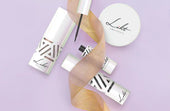
Liht Organics Black Friday: Enhance Your Beauty Routine with Vegan, Organic, and Natural Essentials!
As the holiday season approaches, there’s a sparkle in the air, and we at Liht Organics are thrilled to add a touch o...
-

Organic Makeup That Heals As It Conceals
Liht Organics Empowers Women With Only The Best For Their Beauty NeedsLiht Organics combines the best of both worlds:...
-
![[FEATURE] Liht Organics to debut at TFWA Asia Pacific show](//lihtorganics.com/cdn/shop/articles/1_1.png?v=1759328400&width=170)
[FEATURE] Liht Organics to debut at TFWA Asia Pacific show
‘Organic makeup that’s safe enough to eat’ — Liht Organics to debut at TFWA Asia Pacific show by Hannah Tan | 24 Apri...
-
![[FEATURE] The Singapore-based organic makeup brand is a first-time exhibitor at this year’s TFWA Asia Pacific Exhibition in Singapore in May 2025](//lihtorganics.com/cdn/shop/articles/2_1.png?v=1759328386&width=170)
[FEATURE] The Singapore-based organic makeup brand is a first-time exhibitor at this year’s TFWA Asia Pacific Exhibition in Singapore in May 2025
TFWA Asia Pacific preview: Liht Organics targets expansion in travel retail By DFNI Staff Writer The Singapore-bas...
-
![[FEATURE] Travel Retail Awards 2025 finalists - Best Make-up Product Color-Intense Liquid Lipstick – Liht Organics](//lihtorganics.com/cdn/shop/articles/4_e2f54f0f-fcd1-46e7-9990-fc9d29e35131.png?v=1759328382&width=170)
[FEATURE] Travel Retail Awards 2025 finalists - Best Make-up Product Color-Intense Liquid Lipstick – Liht Organics
Revealed: Travel Retail Awards 2025 finalists By Trbusiness Editor | Wednesday, 23 July 2025 15:21 TRBusiness is th...
-
![[FEATURE] Liht Organics targets expansion in travel retail](//lihtorganics.com/cdn/shop/articles/3_1.png?v=1759328346&width=170)
[FEATURE] Liht Organics targets expansion in travel retail
Organic makeup that’s safe enough to eat: Liht Organics targets expansion in travel retail By Laura Shirk Liht Organ...
-

[FEATURE] Gulf News: TikTok’s strawberry girl makeup trend: How to achieve that rosy glow inspired by Hailey Bieber
Berry, berry, strawberry, love strawberry, like BTS’s J-Hope, the band’s strawberry enthusiast once said. If only we ...
-

[FEATURE] Gulf Business Magazine : Liht-ing it up
Our founder, Nerissa Low was interviewed by Gulf Business, where she discussed her experience launching Liht, an orga...
-

[FEATURE] Daily Vanity: 11 local beauty brands owned by women – you’d be surprised how many of them started in their kitchens!
When we give a shout-out to homegrown beauty businesses, we aren’t just doing it for the sake of supporting local. Th...
-

[FEATURE] Entrepreneur ME : UAE-Based Liht Organics' Nerissa Low On Crafting An Organic Makeup Brand For The Skin-Conscious Consumer
As is the case with the origin stories of so many startups out there, Liht Organics came into being after its founder...
-

Mother, Baby & Child Editor’s Pick: Liht Organics Lights the Way
Excited to be the Mother, Baby & Child’s ‘Editors pick’ for their choice of Beauty brand.The article outlined the...
-

[FEATURE] EmiratesWoman - 8 Fabulous things to do in Dubai this weekend
by SARAH JOSEPHJANUARY 20, 2023Try the UAE’s first virtual reality makeup podium The popular VR-backed makeup exper...
-

Nerissa Low of Liht Organics On The Self-Care Routines & Practices Of Busy Entrepreneurs and Business Leaders
By Maria Angelova, CEO of Rebellious Intl.Date: 4 January, 2023Nerissa Low of Liht Organics On The Self-Care Routines...
-

Liht Organics: Meet the beauty brand that has caught the eye of the Royal Family of Bahrain
By Crystal Lee Digital Editor28 May 2021The world of clean beauty is, ironically, rather murky.That’s because the ter...
-

The latest luxury makeup and skincare drops, including serums, concealers, moisturisers and more
Allisa Noraini21 May, 2021It’s fine to splurge in the name of beauty. This new range of makeup and skincare drops are...
-

These SG Beauty Bosses Are Conquering The World Despite The Pandemic
First Singapore, then the US, China, Germany, Dubai, UK, South Korea, Malaysia, Hong Kong, Thailand, Australia… By...
-

Nerissa Low, Founder at Liht Organics
Written by Callum LaingPosted on December 26, 2020 10 min readNerissa Created Organic Makeup That Actually Improve...
-

Liht Organics – Makeup That Makes You
At Liht Organics, our mission is simple – to provide women (and men) with a safe experience when it comes to beauty s...
-

Why Should We Use Organic Makeup?
We cannot deny that cosmetics is one of our beauty essential item – it enhances our looks and conceals our flaws. Man...
-

Organic makeup and why your skin will love it: Liht Organics founder
By Jolene,July 27, 2020 |7 mins readOrganic make up in Singapore is a trend that is fast-catching on here as we becom...
-

[FEATURE] DC EDIT – Makeup & Confidence: Talking Self-love With Liht Organics’ Founder Nerissa Low
Makeup and confidence — the long, drawn-out fight that many of us have grappled with personally. I’m sure I’m not the...
-

[FEATURE] THE FEMALE CULTURE – I TRIED LIHT ORGANICS AND THIS IS HOW IT WENT
I’m a huge fan of makeup and I love testing out new products so I was pretty excited to get my hands on Liht Organics...
-

[FEATURE] SINGAPORE MOTHERHOOD – The Best Organic and Natural Skincare and Makeup for Pregnant and Breastfeeding Mums in Singapore
Pregnancy is a hormone-volatile period for women. One place where this makes itself seen and felt is on the skin. Som...
-

[FEATURE] AFTER CLINIC HOURS – 21 Back to Beauty Deals in Singapore (2020)
With spas and salons shuttered island wide for two months, I never thought I’d be this desperate for a good old’ Swed...
-

[FEATURE] KUL AL USRA MAGAZINE JUNE 2020
Choosing Pinks & Oranges this summer!Featured: Moisture Burst Lip Glaze in Pink Cupcake.
-
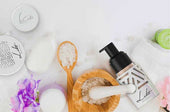
[FEATURE] Award-winning Organic Makeup Brand Liht Organics Gives Back to the Community & Environment During COVID-19
Singapore’s First Organic Makeup Brand with 100% Natural Makeup That Is Safe Enough to Eat Liht Organics promises org...
-

[FEATURE] COSMETICS DESIGN ASIA – COVID-19 ‘WAKE-UP CALL’: SINGAPORE’S LIHT ORGANICS SEES GLOBAL POTENTIAL AMID CLEAN BEAUTY CLAMOUR
Original article at: https://www.cosmeticsdesign-asia.com/Article/2020/06/26/Singapore-s-Liht-Organics-sees-globa...
-

[FEATURE] THE LIFESTYLE COLLECTIVE – BEAUTY SHOULD NEVER BE CRUEL
Date: June 24, 2020Author: Kristen Chen Liht (pronounced as light) Organics is a Singaporean organic makeup brand t...
-

[FEATURE] NÜYOU – 7 ONLINE PLATFORMS TO SHOP FOR CLEAN BEAUTY PRODUCTS
纯净美容(Clean Beauty)的美肤概念,再近几年来越来越受欢迎。随着消费者“爱自己”的美容意识逐步提升,对于用在脸上的所有物品、成分更为关注和讲究。以广义来讲,纯净美容主张使用“干净”成分和无毒配方,让肌肤的可能性损伤减到最小...
-

[FEATURE] COSMOPOLITAN MIDDLE EAST – 3 BENEFITS OF SWITCHING TO ORGANIC BEAUTY PRODUCTS THIS RAMADAN
By Cosmo – May 08, 2020Nerissa Low, founder of Liht Organics, shares the ultimate benefits of going organic this mont...
-

Nerissa Low of Liht Organics: “Seeing Light at the End of the Tunnel; 5 Reasons To Be Hopeful During this Corona Crisis”
Ely Weinschneider, Psy.D.May 8 · 9 min read …It shows us that everyone- whether we are rich or poor, regardless...
-

[FEATURE] AL MARA MAGAZINE APRIL 2020
-

[FEATURE] RetailME April 2020 – Liht Organics Stays Firm On Strengthening GCC Presence
-

[FEATURE] EMARAT AL YOUM NEWSPAPER – 27 MARCH 2020
English Translation:In spring and summer days, women love to have very light makeup in terms of color and texture, ...
-

[ARTICLE] WKND Magazine March 2020 – Know Your Organic Makeup
-

[FEATURE] AVIAMOST DUBAI – March/April 2020
English Translation:Lipstick with organic flowers. Thanks to the rich complex of natural ingredients, the lipstick...
-

[FEATURE] RUSSIAN EMIRATES (MAR/APR ISSUE)
Russian Emirates is a luxury lifestyle and fashion magazine covering information about the UAE, fashion, beauty, j...
-

[FEATURE] – KUL AL USRA MAGAZINE MARCH 2020
GET THE LOOK!
-

[FEATURE] IMAGES Retail ME – Liht Organics Announces GCC-Wide Expansion
Rupkatha Bhowmick Mar 10, 2020 The plan is to reach 75 Liht Organics retail touchpoints by June-July 2020 and touch...
-

[FEATURE] BABY & CHILD SPRING 2020 – NATURAL BEAUTIES
-

[FEATURE] AWQAT DUBAI – Liht Organics: The First Premium Organic Makeup Brand
ENGLISH TRANSLATION:Liht Organics – The First Premium Organic Makeup Brand Liht Organics, a premium organic beauty ...
-

[FEATURE] FRIDAY MAGAZINE – THE RETRO EYELINER LOOK
-

[FEATURE] MOTHER BABY & CHILD – VANITY ESSENTIALS – THE BEAUTY EDIT
-

[FEATURE] Masala! Magazine February/March 2020 Issue – Beauty Debut: Liht Organics
-

[Feature] – TimeOut Singapore – The Best Local Beauty and Skincare Brands In Singapore
For full article, click here.
-

[FEATURE] KUL AL USRA MAGAZINE – LIHT UP YOUR WORLD WITH LIHT ORGANICS
[ENGLISH TRANSLATION]Liht Up Your World With Liht OrganicsThe First Premium Organic Makeup Brand To Debut In The Mi...
-

[FEATURE] SINGAPORE TATLER – 9 Local Beauty Brands You Should Know Of
-

[FEATURE] nüyou August 2019 Issue – 15 Faces To Watch
-

[FEATURE] HONEYCOMBERS – Local Beauty Gurus: Singapore Beauty Brands You Need To Know About
-

[FEATURE] The Wellness Insider – Seeing The Liht With Founder Nerissa Low
-

[FEATURE] 联合早报 (LianHeZaoBao) – Women Entrepreneur Awards 2019 Coverage
-

[FEATURE] THE STRAITS TIMES Life – Clean beauty with a Singapore heart
-

Romantic Organic Makeup Looks for Valentine's Day: Tips, Tricks, and Product Picks
Valentine's Day is the perfect occasion to embrace the beauty of organic makeup. At Liht Organics, we believe in the ...
-
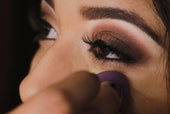
Enhance Your Eyes: A Guide to Eyeliner for Every Eye Shape with Liht Organics
Welcome to the Liht Organics blog, where we believe in celebrating the natural beauty of every eye shape. Today, we'r...
-
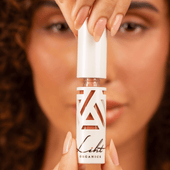
How to do makeup with only lipstick?
At Liht Organics, we believe in the power of clean beauty and the artistry of makeup. Makeup is more than just enhanc...
-

How to Clean Your Makeup Brushes in 6 Simple Steps
Cleaning your makeup brushes may seem like a tedious task, but it's an essential part of your beauty routine. Not onl...
-

Makeup Tips to Help You Look Your Most Flattering on Virtual Meetings!
After more than 2 years of work-from-home arrangement, and possibly hundreds of zoom calls and Google meet virtual me...
-
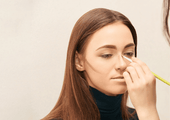
Learn How to Contour with This Simple Guide for Beginners
Want to take your makeup to the next level? Try contouring to achieve a more defined or sculpted look à la the Kardas...
-
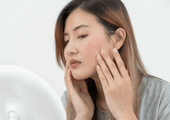
Essential and Easy Makeup Tips for Sensitive Skin
Living with sensitive skin conditions like eczema, psoriasis, and more is already not an easy feat. Throw in makeup t...
-

Raising Your Vibration: A Liht Organics Guide for Empowerment This International Women's Day
wp:paragraph As International Women's Day (IWD) approaches, it serves as a powerful reminder of the journey towards s...
-

The Beauty of Going Bare: Why Sleeping with Makeup is a No-No
Have you ever had one of those nights where you're too tired to clean off your makeup? You might believe, "Skipping...
-

Breast Cancer Awareness: Empower Your Beauty with Liht Organics Makeup
During October, we observe Breast Cancer Awareness Month as a way to unite and bring attention to breast cancer whil...
-

The Hidden Dangers of Carmine in Makeup Colorants: Embracing Healthier and Vegan Options
Makeup has become an integral part of our daily routines, allowing us to express our unique beauty. However, as we pr...
-

How can I ensure that my makeup products are organic and won't harm my skin?
When it comes to makeup, it’s important to be mindful of what you’re putting on your skin. With so many products on t...
-

[FEATURE] HONEYCOMBERS – BEST BEAUTY BUYS IN JULY
by Nicole NithiyahWhat’s hot in our beauty hit list: Honest thoughts and top beauty stories we’re swooning over. As w...
-

Liht Organics Introduces Exclusive Gift Sets: Enhance Your Beauty This Festive Season!
As the holiday season approaches and the year draws to a close, Liht Organics is thrilled to present two enchanting g...
-

Get Spooktacular with the Best Halloween Makeup Ideas using Liht Organics' All-Natural, Vegan, and Cruelty-Free Cosmetics!
With Halloween just around the corner, it’s time to let your creativity shine and transform yourself into a spooky,...
-

Celebrating World Animal Day with Liht Organics: Embracing Natural Cruelty-Free Makeup
wp:paragraph As we observe World Animal Day, the team at Liht Organics takes great pride in honoring our pledge to...
-

Reasons Why You Should Choose Cruelty-Free Cosmetics Instead!
With increasing exposés unveiling the ugly truth behind animal testing that goes on in the beauty industry, it is lit...
-

Celebrate Singles Day with Makeup That Empowers – 22% Off at LIHT Organics!
This Singles Day, treat yourself to beauty that goes beyond skin-deep. At LIHT Organics, we believe makeup is about s...
-

Preparing for the Cozy Beauty of Autumn: A Preview of Your Fall Look
As we bid farewell to the warm, sun-kissed days of summer, it’s never too early to start dreaming about the enchantin...

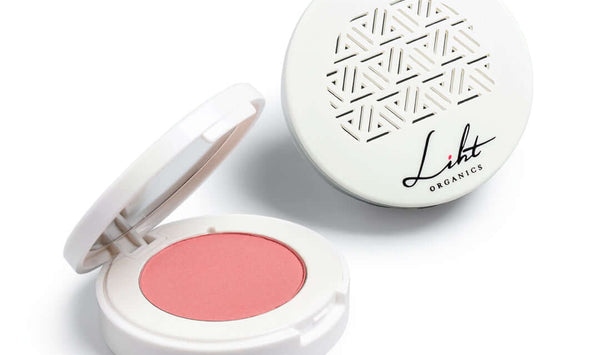
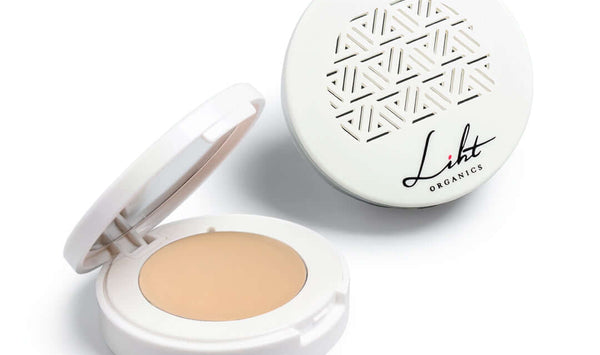
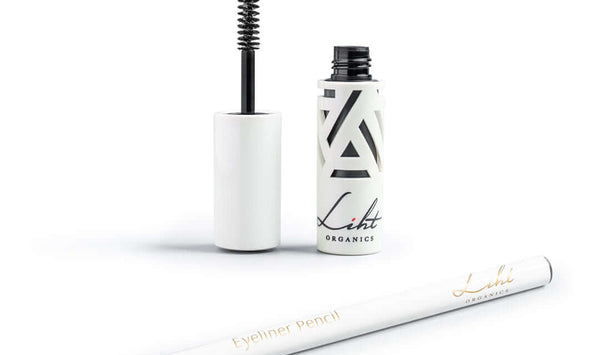
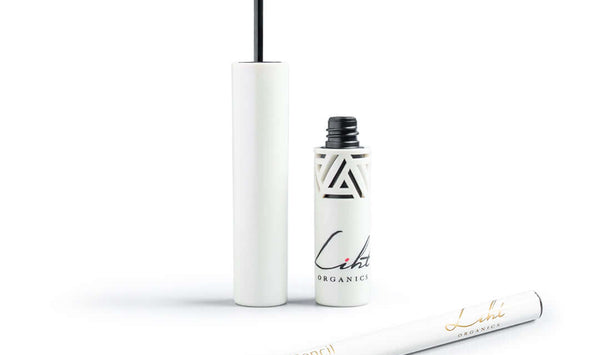
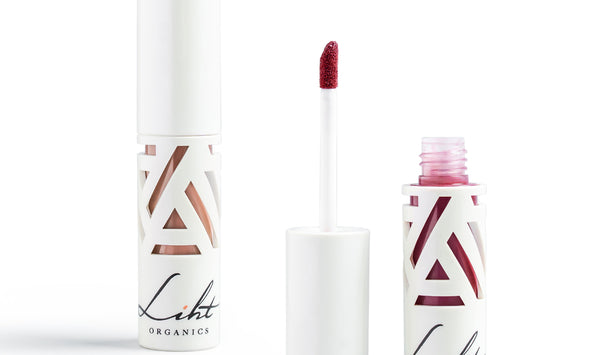
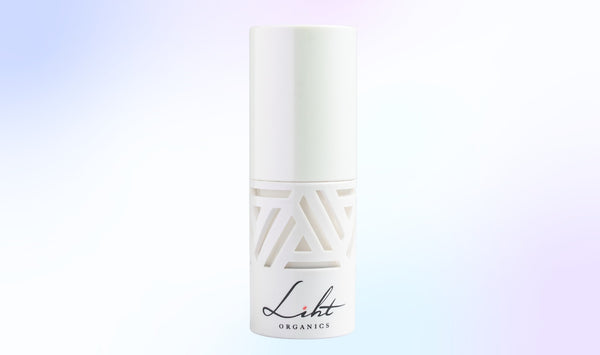

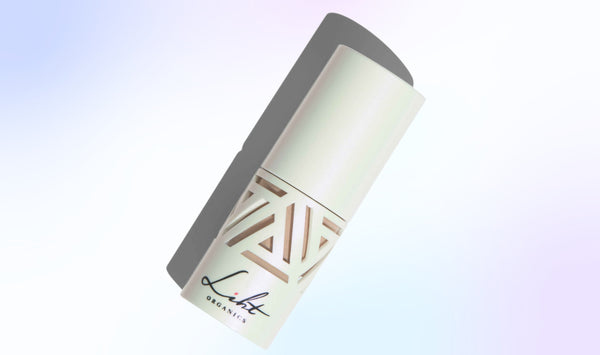
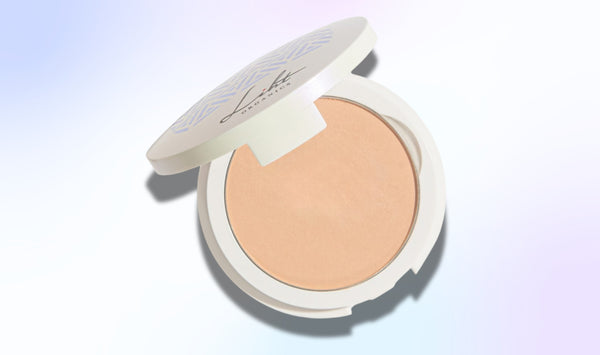
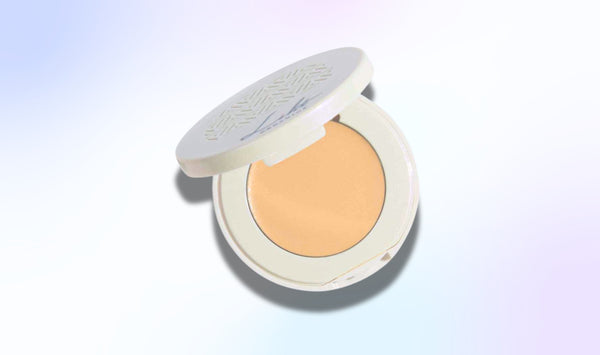
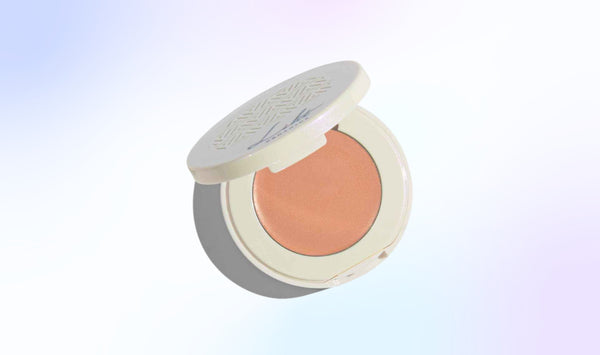
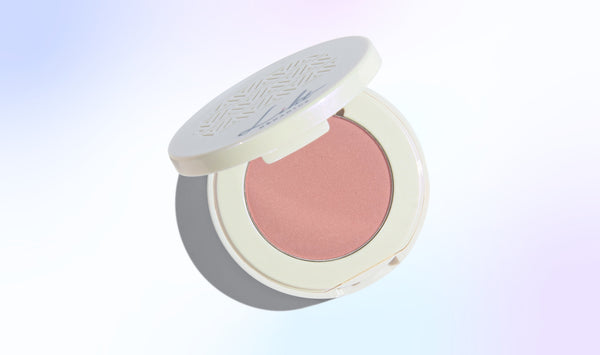
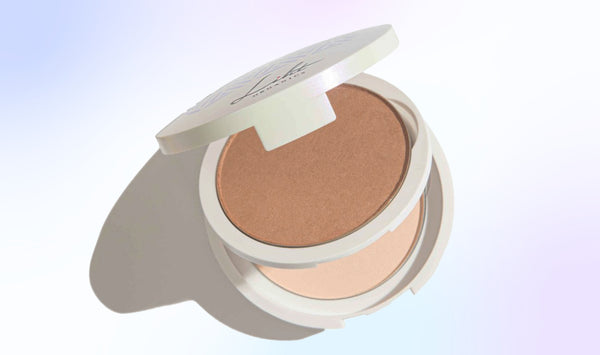
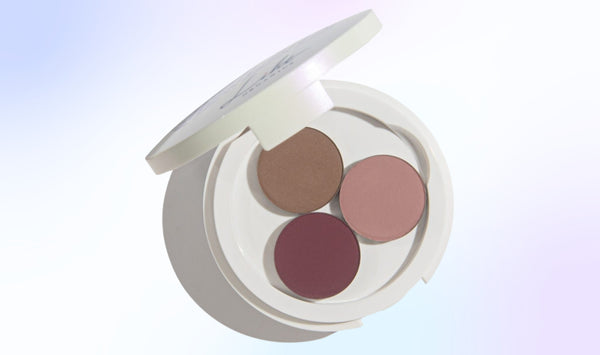
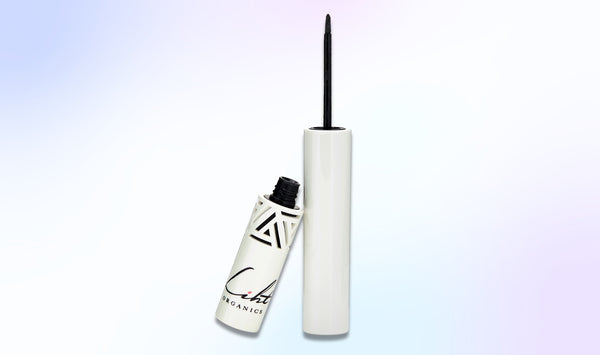
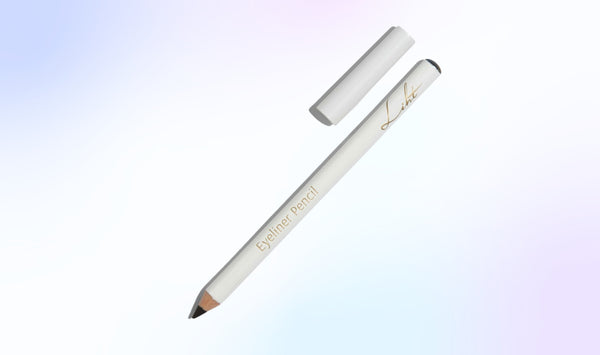
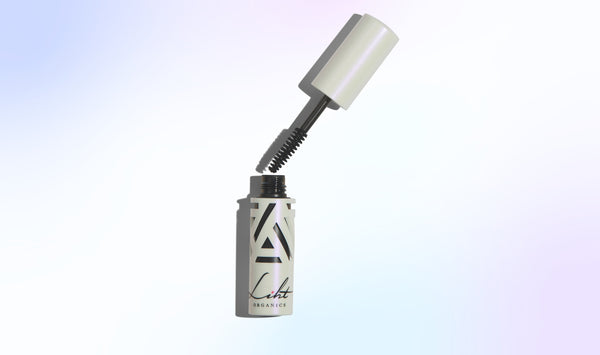
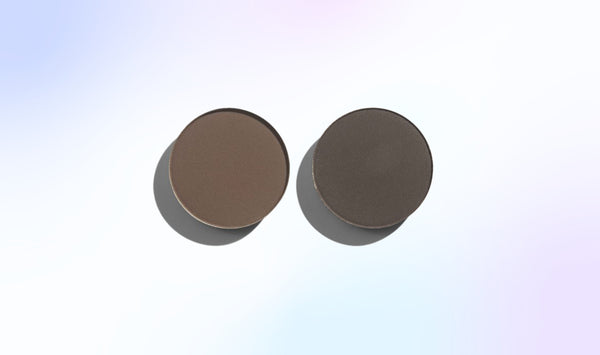
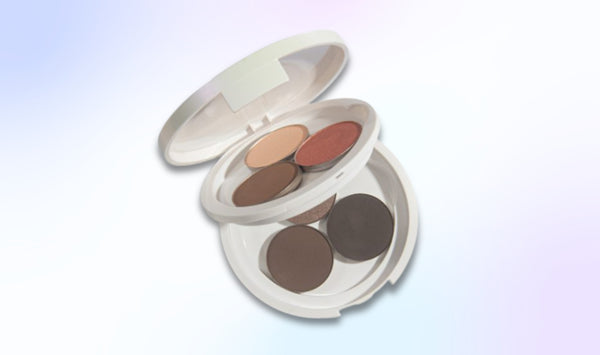
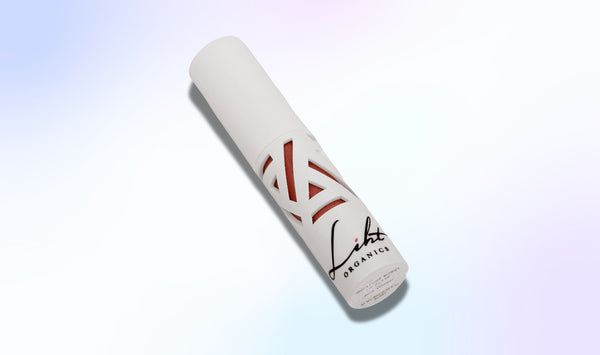
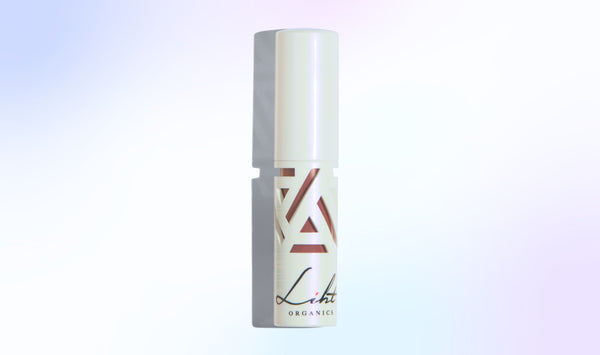
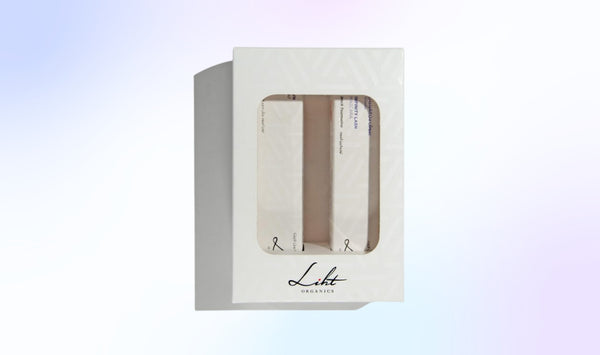
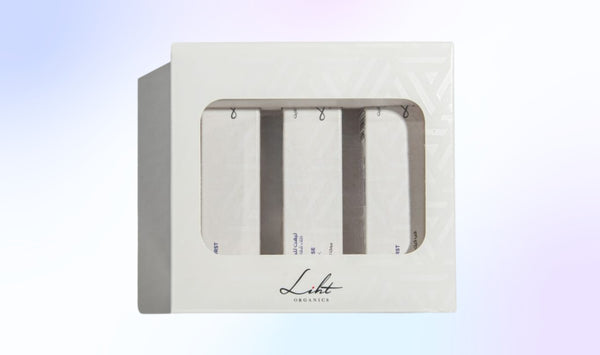


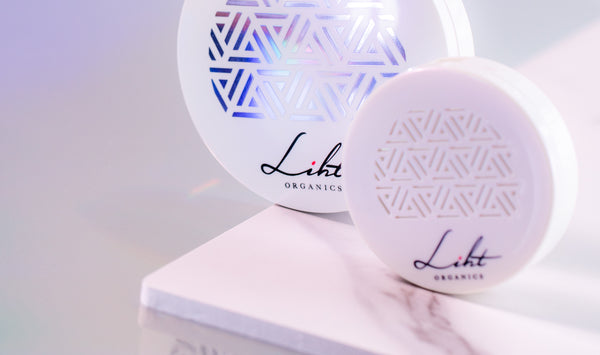
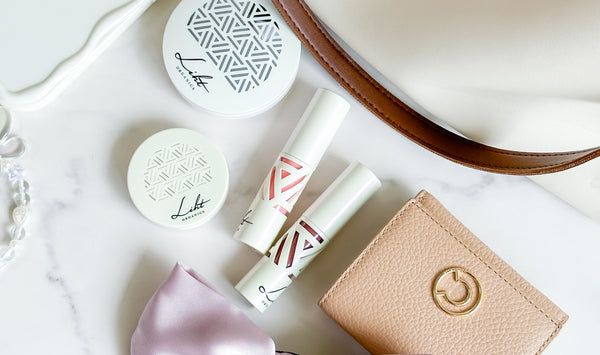
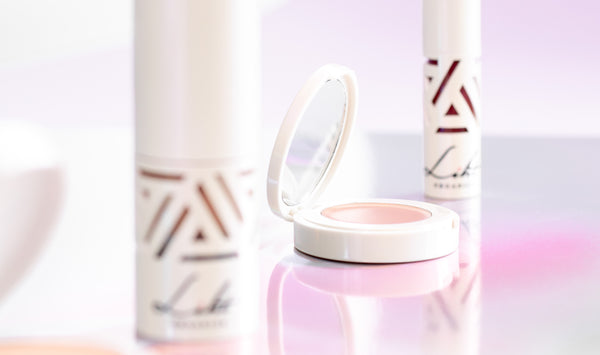




![[FEATURE] Liht Organics to debut at TFWA Asia Pacific show](http://lihtorganics.com/cdn/shop/articles/1_1.png?v=1759328400&width=170)
![[FEATURE] The Singapore-based organic makeup brand is a first-time exhibitor at this year’s TFWA Asia Pacific Exhibition in Singapore in May 2025](http://lihtorganics.com/cdn/shop/articles/2_1.png?v=1759328386&width=170)
![[FEATURE] Travel Retail Awards 2025 finalists - Best Make-up Product Color-Intense Liquid Lipstick – Liht Organics](http://lihtorganics.com/cdn/shop/articles/4_e2f54f0f-fcd1-46e7-9990-fc9d29e35131.png?v=1759328382&width=170)
![[FEATURE] Liht Organics targets expansion in travel retail](http://lihtorganics.com/cdn/shop/articles/3_1.png?v=1759328346&width=170)
































































